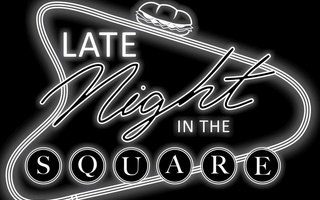Next month, the Faculty of Arts and Sciences will vote on a proposal to introduce two new engineering concentrations to the curriculum. If approved, electrical and mechanical will join biomedical as the only specialized engineering programs at Harvard.
Some have raised concerns about the effect that two new concentrations, each requiring 20 half courses, will have on students’ freedom to explore different areas of interest. A few faculty members also allege that departments that teach more practical skills, like engineering, should not be expanded. These fears could not be more unfounded—the expansion of SEAS is a positive development that will only complement the diverse options offered by the Program in General Education. Further, the belief that the study of a practical field is anti-intellectual or detrimental to a liberal arts education is fallacious; engineering is as intellectually rigorous a field as any other at Harvard, and deserves expansion.
Students only stand to gain from more options. Academia is not a zero-sum game in which the expansion of a field can only occur at the expense of another. Enabling students to choose from a larger pool of academic options will only enrich the educational experience at Harvard. The Gen Ed program already provides a wealth of academic options and diverse courses that make a liberal arts education special—expanding the engineering department only furthers these goals.
At some institutions, students are compelled to commit to a field of study prior to matriculation. Harvard fortunately has no such requirement. This allows students to dabble in different fields prior to declaring a concentration. While the timetable for this will be understandably constrained for engineering concentrators, students will still retain the ability to explore different fields before choosing a long-term academic path.
It is worth noting that SEAS has been committed to growing the engineering program for a while. We are glad to see SEAS taking concrete steps to actualize its plans to expand Harvard’s engineering program.
While electrical and mechanical engineering may not fit into the conventional conception of a liberal arts program, the notion that such programs are tainted by even the slightest trace of practicality is fundamentally flawed. Practicality is not tantamount to pre-professionalism, a distinction many seem to forget when considering engineering. The purist paranoia at times exhibited by some faculty does a disservice to liberal education as a whole. Education is continually evolving—Harvard stands to lose by remaining anchored to the past.
Read more in Opinion
A Matter of PerspectiveRecommended Articles
-
Purcell Leaves IOP for AllstonBill Purcell will resign as the director of the Institute of Politics to work as an advisor on the University’s expansion into Allston, a project marked by uncertainty in a time of fiscal constraints.
-
I Don’t Believe I Can Fly-ByI would give the Harvard University Dining Services’ Fly-By option an “F” for its food, for its freshness, and for the word I think of whenever I must once again bypass the congealed baked ziti offering.
-
We Need More BodiesIt’s all in how you say it: “Oh wow.”
-
Saluting the MilitaryAllowing military recruiting and including them in job fairs is entirely in line with the missions of OCS and Harvard as a whole, to prepare students for whatever career fulfills their individual passions.
-
 Late Night in the Square
Late Night in the Square -
When Politics Trumps Policy ImplementationIt is economically unwise and morally corrupt to refuse to expand Medicaid to the citizens who need it the most.













